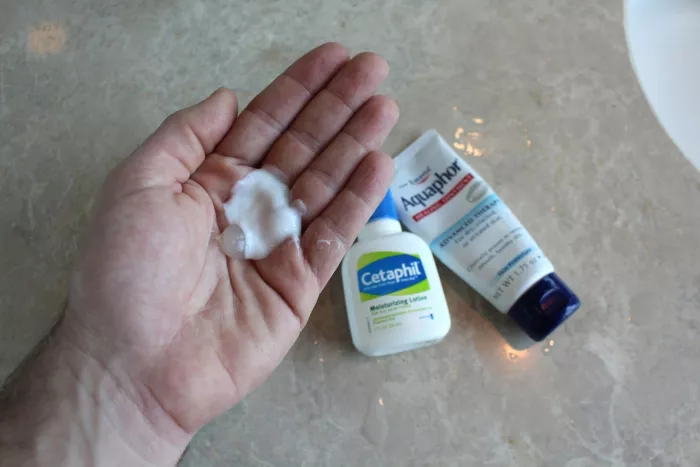Scars can be a constant reminder of past injuries, acne, or surgeries. Many people search for gentle, effective ways to fade them, leading to the question: Can Cetaphil remove scars? While Cetaphil is a trusted brand for sensitive skin, its role in scar treatment is often misunderstood. This article explores whether Cetaphil can help with scars, how to use it effectively, and what other treatments may be necessary for best results.
What Is Cetaphil?
Cetaphil is a dermatologist-recommended skincare brand known for its mild, non-irritating formulas. It offers cleansers, moisturizers, and lotions designed for sensitive, dry, and acne-prone skin. Unlike harsh skincare products, Cetaphil avoids sulfates, parabens, and artificial fragrances, making it a safe choice for people with easily irritated skin.
Popular Cetaphil Products
Cetaphil Gentle Skin Cleanser – A soap-free cleanser that removes impurities without stripping natural oils.
Cetaphil Moisturizing Cream – A rich cream for dry skin, providing long-lasting hydration.
Cetaphil Daily Hydrating Lotion – A lightweight moisturizer with hyaluronic acid for extra moisture.
Since Cetaphil focuses on gentle skincare, it’s not specifically formulated for scar removal. However, its benefits for overall skin health may indirectly help scars appear less noticeable.
How Cetaphil Affects Scars
Scars form when the skin repairs itself after an injury. While Cetaphil isn’t a scar treatment, it can support the healing process in several ways:
1. Hydration Helps Scars Look Smoother
Dry skin can make scars appear more raised and discolored. Cetaphil’s moisturizers lock in moisture, keeping the skin soft and potentially reducing the visibility of scars over time.
2. Gentle Cleansing Prevents Irritation
Harsh soaps can worsen scars by causing redness and inflammation. Cetaphil’s mild cleansers remove dirt and bacteria without disrupting the skin barrier, which is crucial for scar healing.
3. Healthy Skin Heals Better
Scars fade faster when the surrounding skin is healthy. By keeping skin clean, hydrated, and free from irritation, Cetaphil creates an optimal environment for scars to soften and blend in.
Best Cetaphil Products for Scar Care
While no Cetaphil product is designed specifically for scars, some can be more beneficial than others:
1. Cetaphil Gentle Skin Cleanser
Why it helps: Prevents clogged pores and irritation, which can make acne scars worse.
Best for: All skin types, especially sensitive or acne-prone skin.
2. Cetaphil Moisturizing Cream
Why it helps: Thick, nourishing formula soothes dry, flaky skin around scars.
Best for: Dry or mature skin with old scars.
3. Cetaphil Daily Hydrating Lotion
Why it helps: Contains hyaluronic acid to plump skin and reduce scar texture.
Best for: Oily or combination skin types.
Limitations of Cetaphil for Scars
While Cetaphil can improve skin health, it has limitations when it comes to scar removal:
Doesn’t treat deep scars – Atrophic (indented) or hypertrophic (raised) scars need specialized treatments like lasers or silicone sheets.
No active scar-fading ingredients – Unlike products with retinoids or vitamin C, Cetaphil doesn’t directly promote collagen remodeling.
Slow results – Scars take months to fade, and Cetaphil alone may not speed up the process significantly.
What Works Better for Scars?
For better scar fading, combine Cetaphil with:
- Silicone gels (for raised scars)
- Vitamin E oil (for hydration and healing)
- Sunscreen (SPF 30+) (to prevent darkening)
- Dermatologist treatments (laser therapy, microneedling)
How to Use Cetaphil for Scar Improvement
Step 1: Cleanse Gently
- Wash the scar area with Cetaphil Gentle Skin Cleanser twice daily.
- Avoid scrubbing, which can irritate scars.
Step 2: Moisturize Regularly
- Apply Cetaphil Moisturizing Cream or Daily Hydrating Lotion after cleansing.
- Keeping scars hydrated helps them blend better with surrounding skin.
Step 3: Protect from Sun Damage
- UV exposure darkens scars, making them more noticeable.
- Always apply broad-spectrum sunscreen (SPF 30+) over scars when going outside.
Step 4: Combine with Other Treatments
- For faster results, use Cetaphil alongside scar gels (like Mederma) or dermatologist treatments.
When to See a Dermatologist
If scars don’t improve with skincare alone, consult a dermatologist for:
- Laser treatments (for deep or discolored scars)
- Chemical peels (to resurface skin)
- Steroid injections (for keloid scars)
- Prescription creams (like tretinoin for acne scars)
Real User Experiences: Does Cetaphil Help Scars?
Many users report that Cetaphil helps maintain healthy skin, which indirectly improves scars. However, most agree that it doesn’t erase scars completely.
Positive Reviews:
- “Cetaphil keeps my acne scars from getting dry and flaky, making them less noticeable.”
- “I use Cetaphil with vitamin E oil, and my old scars have softened over time.”
Negative Reviews:
- “Cetaphil is gentle but didn’t do much for my deep acne scars.”
- “It’s a good moisturizer, but you need stronger treatments for real scar fading.”
Conclusion
Cetaphil cannot remove scars completely, but it can help improve their appearance by:
- Keeping skin hydrated
- Preventing irritation
- Supporting overall skin health
For best results, combine Cetaphil with targeted scar treatments and be patient—scar fading takes months.
Related topics:
Can microdermabrasion remove acne scars?
Does Laser Freckle Removal Leave Scars?
Can Plastic Surgeons Remove Scars?


